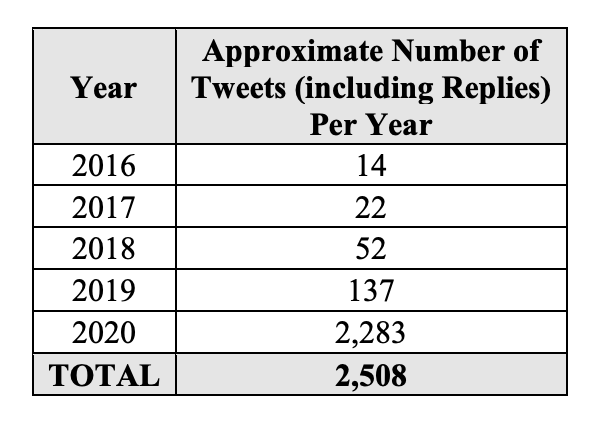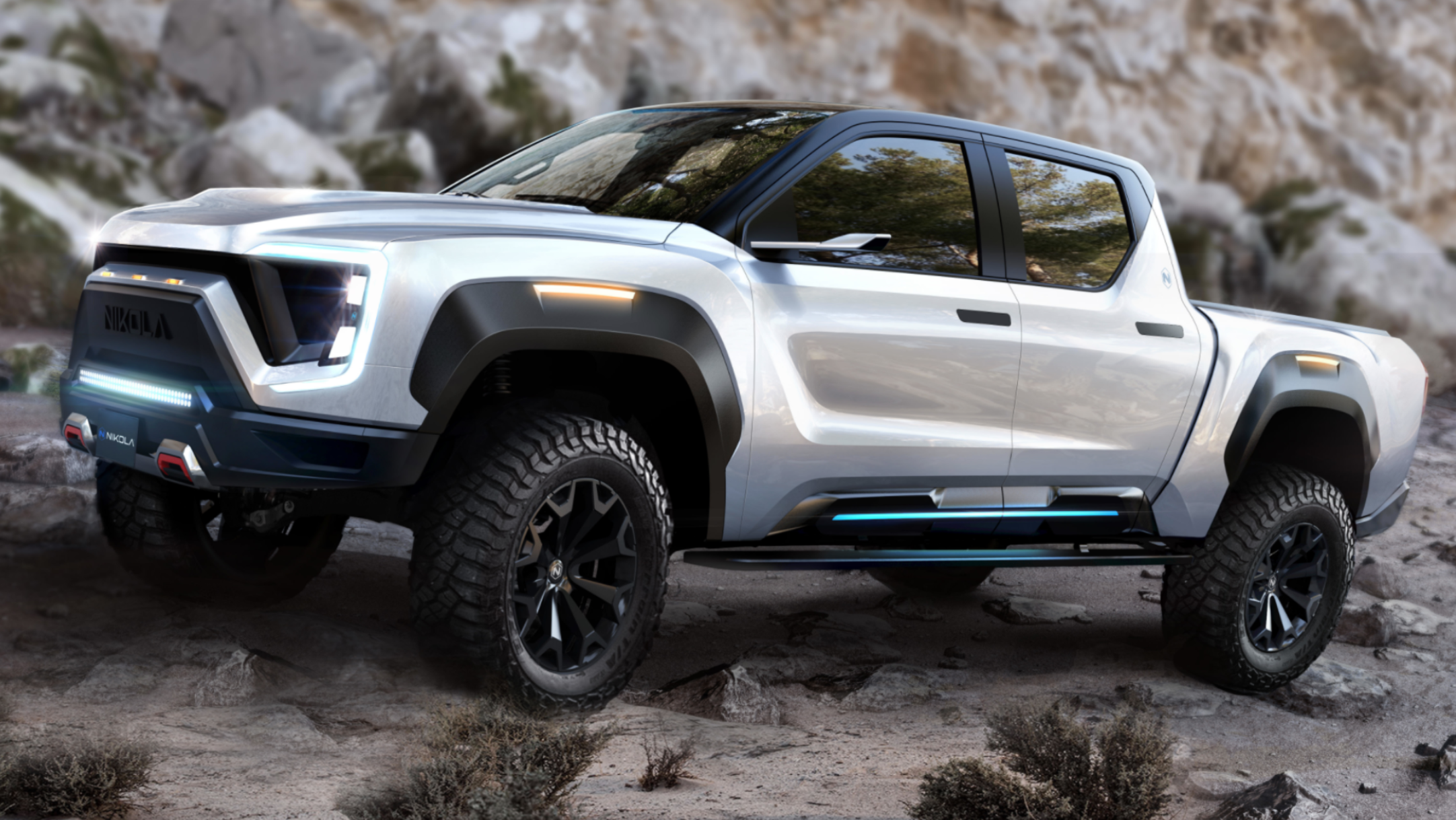Here Are Some Highlights From The Feds' Case Against Nikola Founder Trevor Milton
Milton left the company last year after a bizarre time atop the startup.
Nikola founder Trevor Milton was indicted Thursday on fraud charges by federal authorities in Manhattan, capping a long downfall for the EV truck startup founder.
Authorities filed both a criminal and civil case against Milton; you can read the criminal indictment here. The civil complaint was filed by the Securities and Exchange Commission. Both documents make for entertaining reading.
Take this, from the civil complaint:
It was not unusual for Nikola's engineers, executives, and even marketing personnel to find out about company initiatives, timelines, or product features by reading a Milton tweet or watching him in an interview. For example, on June 25, 2020, Milton sent a series of tweets from his personal account in which he claimed that Nikola would offer a drinking fountain in the Badger. This information came as a complete surprise to Nikola's designers, engineers, and marketing personnel. When informed of the tweets, one engineer questioned whether "this [is] a joke," a marketing employee wrote that his "head is fuzzy," and a designer texted, "[u]hhhhh what."
Or this:

Or this:
On days when Nikola's stock price declined, Milton regularly attempted to direct Nikola's senior executives to take actions to stop the price decline. Senior executives received frantic phone calls or text messages from Milton on such days in which he urged the executives to "do something." Milton also spoke of needing to put out "good news" or some kind of announcement "to get people excited" as a way to counteract price declines or maintain support for the stock price.
41. For example, following a short period of stock price decline in August 2020, Milton sent a text message to a senior Nikola executive requesting to "talk strategy ASAP." Milton went on to say that the "continual stock decline is going to erode any confidence in our stock. We have to do something . . . . We can't just sit here and watch it collapse." Another time, in late July 2020, Milton contacted a different Nikola senior executive to discuss the possibility of Milton buying shares of Nikola "for the company's health" because Nikola has had "zero news for two weeks and it's important to prevent our stock from losing credibility."
Or this:
However, Milton's focus remained on the stock price and his attempts to influence the retail investors who he viewed as driving it. To that end, Milton tracked the daily number of new Robinhood users who held Nikola stock. On June 8, 2020, Milton shared a tweet with a senior Nikola executive reflecting that over 36,000 new Robinhood users became Nikola stockholders that day. The senior executive responded, in part, by expressing his amazement at how many calls he received "from retail investors today that have no clue about Nikola, other than their friends told them to buy. A lot of hype out there with retail investors," to which Milton replied: "That's how you build a foundation. Love it."
Or this:
Milton's claims that Nikola had either "solved," "driven down," or otherwise achieved this cost of [hydrogen production] were false and they grossly misled investors and prospective investors, as Nikola did not have the ability to produce hydrogen, much less at the prices that Milton represented. As an initial matter, any claims about Nikola's current cost to produce hydrogen were false simply because Nikola had not then produced any hydrogen – a fact Milton knew. Further, and as discussed in more detail below, at that time Nikola did not have any agreements with electricity providers that would have enabled it to produce hydrogen at Milton's claimed cost – a fact Milton also knew. Given that electricity costs make up 75-85 percent of hydrogen production costs, Milton's claims about Nikola's supposed ability to produce hydrogen at the specified costs – without Nikola having any agreements in place to lock in electricity costs – were false.
74. The figures that Milton cited as Nikola's current costs were, in reality, Nikola's projections at which future production, if it ever occurred, could be profitable. Once again, Milton presented to investors something Nikola hoped to do as something it had already achieved.
Or this:
On June 9, 2020 – the day Milton tweeted multiple misrepresentations about electricity prices – Nikola's Global Head of Infrastructure Development forwarded Milton an email from an electrolyzer supplier concerning costs and delivery. This employee sought Milton's input on the delivery schedule for the accelerated purchase order, noting that "we don't have PPA's [sic] executed yet to support these electrolyzers." Further, Milton attended a July 2020 Board of Directors meeting at which Nikola's hydrogen infrastructure team apprised the Board that the company had not yet entered into any PPAs and that rate negotiations with electricity providers were ongoing at the time. In fact, the only rate agreement that the company has entered into to-date occurred after Milton left Nikola in September 2020.
Or this, about an unnamed OEM engineer (GM was, at one point, investing $2 billion in Nikola but who knows, could be anybody) realizing Nikola's headlining pickup truck didn't exist:
The statements that Nikola had "designed" or "engineered" the Badger to meet particular specifications misled investors regarding the state of Badger's development at the time of its announcement. When Milton announced the truck in February 2020, there was no Badger. At that time, Nikola had not performed any engineering work or any design work, other than CGI renderings of the Nikola employee's prior illustrations. An OEM engineer, who visited Nikola's offices in February 2020 to conduct diligence in connection with a potential partnership to build the Badger, summed up the Badger's state at the time as "vaporware."
[...]
...in June and July 2020, when Milton again touted the Badger as being "built," "done," "real," and a "fully functioning vehicle inside and outside," the third-party suppliers were then only completing computer-aided design (CAD) and beginning tooling. In the same month, Nikola's Vice President of Technology referred to the Badger in an internal email as "vapor ware" [sic] "with no technical plan."
Or this:
Another time, Milton cited the non-binding nature of the reservations in an attempt to convince a potential customer to double the amount of reservations in which the customer was originally interested. Milton wrote to this party, "[y]ou had asked for 50 trucks that would have been $500 for each deposit. What I did since it is fully refundable at any time, is put you down for 100 at $250. You can cancel at anytime any of those."
Or this:
Milton's statements that valued the transaction with Customer A at $1-2 billion also were misleading because they created the false impression that the parties had agreed on the price of the trucks. But the agreement with Customer A did not have a price term. Rather, the agreement provided that the parties would negotiate the price later. For this reason, Customer A specifically made a request to Milton that Nikola not include any reference to price or value of the transaction in any press release announcing the transaction. While Nikola abided by this request, Milton immediately and repeatedly claimed, as detailed above, that the value of the deal was $1-$2 billion.
Does a reference to Elon Musk getting in trouble for tweeting appear? You bet it does.
In or around 2019, Nikola's Chief Legal Officer advised Milton about the perils of inaccurate tweets, specifically referencing the Commission's then-recent charges against another auto company executive arising from certain allegedly misleading statements he made in tweets from his personal account relating to material information about the company. In or around early 2019, a senior Nikola executive explained to Milton that tweets from his personal account were the legal equivalent of a company press release, as Milton would be viewed as speaking on behalf of the company in any format.
157. Then, in a series of ongoing conversations in 2019 and 2020, Nikola's then-President advised Milton to let Nikola's Chief Legal Officer pre-screen any tweets that Milton planned on posting from Nikola's corporate account. With few exceptions, Milton did not have anyone pre-screen any of his tweets. And throughout 2020, senior executives continued to urge Milton to be accurate in his public statements and to reduce his social media presence.
158. Further, senior Nikola executives attempted other tactics in the spring and summer of 2020 to try to rein in Milton's social media presence, to no avail. On at least one occasion, they enlisted the help of a member of Nikola's Board of Directors who they believed could influence Milton. And they scheduled media training for all senior executives with a third party service provider, but Milton did not attend.
159. In general, Milton responded to feedback about his social media presence and his public statements about Nikola by asserting that these senior executives did not understand current capital market dynamics or what he was trying to accomplish with retail investors, and that he needed to be on social media to put out good news about Nikola to support its stock price
Finally, what Milton was seemingly getting out of all of this:
Milton had a financial incentive to increase and support the price of Nikola's stock, based on the shares he held and the shares he was entitled to earn if Nikola reached and sustained certain stock price milestones. During negotiations of the Business Combination, Milton resisted the inclusion of provisions that would have required him to be locked up from transacting in Nikola securities for any period of time, and, when that became infeasible, sought to negotiate as short of a lock-up period as possible. Ultimately, Milton agreed to a one-year lock-up pursuant to a Registration Rights and Lock-up Agreement.
161. Carved out from the lock-up was Milton's $70 million cash-out at the time of the Business Combination and up to an additional $70 million in stock that could be sold six months after the Business Combination. Despite these lucrative carve-outs from the lock-up, Milton almost immediately sought to shorten his lock-up. In a July 7, 2020 email exchange with a member of Nikola's Board of Directors, Milton justified being released from the lock-up by citing the "over 400% gain" that he delivered, making "everyone else millionaires and billionaires." Lifting the lock-up, according to Milton's reasoning, would "allow us to manage our estates and finances the right way."
162. Milton's efforts bore fruit almost immediately. On July 17, 2020, just over a month after entering into the Registration and Lock-up Agreement, Milton, Nikola, and the other parties to the agreement agreed to amend it. Under the terms of the amendment, which Milton specifically requested, (i) Milton's lock-up period was shortened from one year to just under six months, and (ii) Milton was permitted to transfer up to 16 percent of his shares solely to the extent necessary to pledge such shares as collateral in connection with indebtedness incurred by him for the purpose of purchasing additional shares of Nikola stock.
Prosecutors also detailed various episodes we already knew about, like the time it rolled a truck down a hill. Why GM ever took a look at Nikola and saw something — anything — it liked is, at this point, known only to GM. A spokesman for Milton didn't immediately comment to The Wall Street Journal and a lawyer for him was not listed. I emailed Nikola for comment and it gave me the following:
Trevor Milton resigned from Nikola on September 20, 2020 and has not been involved in the company's operations or communications since that time. Today's government actions are against Mr. Milton individually, and not against the company. Nikola has cooperated with the government throughout the course of its inquiry. We remain committed to our previously announced milestones and timelines and are focused on delivering Nikola Tre battery-electric trucks later this year from the company's manufacturing facilities.
You can read the SEC's full complaint below.
